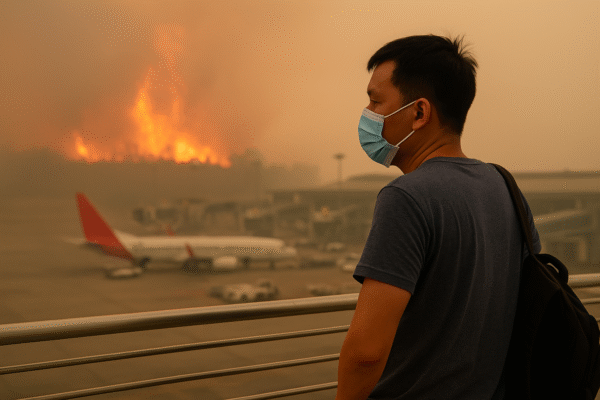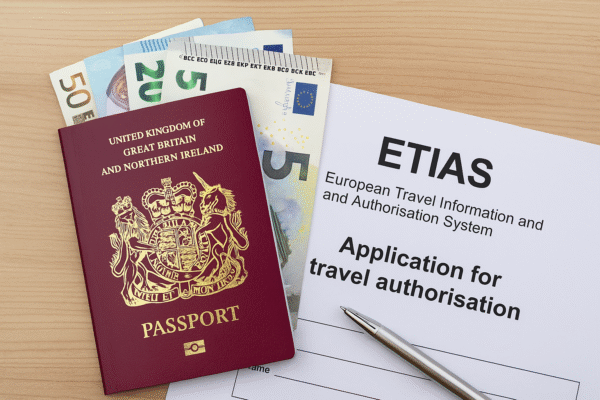Greece Enforces Midday Work Ban Amid Severe Heatwave to Protect Workers and Tourists
As southern Europe continues to experience blistering temperatures, the Greek government has implemented strict new regulations to safeguard public health. In response to extreme heat forecasts, Greece’s Labour Ministry has issued a temporary outdoor work ban between 12:00 and 17:00 in several high-risk regions across the country. The move comes as temperatures are expected to exceed 40°C, prompting concerns for both workers and tourists.
The decision, announced in mid-July 2025, is part of a broader government strategy to reduce heat-related health risks and mitigate the economic and social impact of climate extremes. The new midday ban applies to outdoor manual labor, especially in sectors such as construction, technical services, and deliveries using two-wheeled vehicles.
Heatwave Safety Measures to Protect Workers and Visitors
The Hellenic National Meteorological Service has issued a Moderate High-Temperature Warning, triggering government action. The Labour Ministry’s new rules specifically target outdoor manual labor during the hottest hours of the day, when the risk of heatstroke and dehydration is at its highest.
Affected professions include construction workers, technical field employees, and food or package delivery drivers. Employers in the most heat-impacted regions are legally required to halt outdoor operations from 12:00 to 17:00 daily.
Areas Affected by the Heatwave Ban
The 12pm–5pm outdoor work ban is in effect across key parts of mainland and island Greece, including:
- Evros (Soufli area)
- Serres
- Larissa
- Viotia (Aliartos area)
- Halkidiki (Polygyros area)
- Imathia (Veria area)
- Trikala, Fthiotida, Aitoloakarnania
- Ionian Islands
- Eastern Rhodes
- Coastal regions of Corinth, Argolida, Arcadia, Laconia, and Messinia
These areas are under special watch for elevated heat risks due to their lowland, coastal, or island geography.
Employers who violate the mandate face strict penalties. Fines can reach €2,000 per incident, reinforcing the seriousness of the health directive.
Which Sectors Are Exempt?
While the majority of outdoor work is suspended during peak heat hours, the Labour Ministry clarified exemptions for critical sectors. Vital services such as healthcare, power and water supply, air and sea transport, and emergency maintenance are permitted to operate under strict safety guidelines.
For example, utility companies or emergency responders who must work outdoors are required to provide heat-protection measures including shade, hydration, and regular rest periods.
Delivery services using air-conditioned vehicles can continue operations, although two-wheeled transport (e.g., motorcycles, scooters, roller skates) remains prohibited from operating during the restricted hours.
Protecting Tourism and Cultural Landmarks
Tourism officials are also implementing parallel measures to safeguard visitors during the heatwave. Earlier this month, the Acropolis of Athens temporarily closed its gates during midday hours to avoid health emergencies among tourists and staff. Additional heritage sites may follow suit depending on regional heat levels.
The Ministry of Culture and Sports has asked tourists to check official websites before visiting archaeological landmarks, and to carry water, hats, and sunscreen when touring exposed historical locations.
Heatwaves, Wildfire Risk, and Economic Impact
Greece’s proactive approach is not just about individual health—it’s a critical move to prevent wildfires, which become a significant threat during periods of extended dryness and high temperatures. According to the General Secretariat for Civil Protection, fire risk is already elevated across parts of the Aegean and mainland Greece, including Attica, Peloponnese, and Central Greece.
With wildfires causing billions in economic damage in recent years, including damage to agricultural zones and tourist accommodations, these protective regulations aim to preserve both the workforce and tourism infrastructure.
A Model for Other European Nations
Greece is among the first European Union countries in 2025 to enforce a nationwide midday outdoor work ban during a heatwave. Other southern European nations, such as Spain and Italy, are monitoring Greece’s labor and tourism protections closely as their own regions grapple with similar conditions.
According to the European Environment Agency (EEA), southern Europe is increasingly vulnerable to climate extremes. Heatwaves have become more frequent, intense, and longer-lasting due to global warming—making government preparedness essential.
Advice for Tourists Visiting Greece During the Heatwave
Travelers planning a Greek holiday this summer are advised to:
- Avoid outdoor excursions between 12:00 and 17:00
- Stay hydrated and wear sun-protective clothing
- Monitor regional weather alerts via Hellenic National Meteorological Service
- Follow all posted guidance at hotels, beaches, and historical sites
- Seek air-conditioned indoor attractions such as museums during midday hours
Despite the extreme weather, Greece remains a safe and vibrant summer destination, with contingency measures in place to ensure the safety of both locals and international visitors.
Looking Ahead
As climate conditions continue to evolve, the Greek government may introduce further rules to reduce heat-related harm. These could include enhanced emergency cooling zones, expanded public awareness campaigns, and tourism schedule adjustments.
For now, the 12pm–5pm work ban represents a crucial step in balancing economic activity with human health and safety. Whether you’re a construction worker in Larissa or a tourist climbing the hills of Rhodes, Greece is prioritizing your well-being under the Mediterranean sun.
For more travel news like this, keep reading Global Travel Wire



















